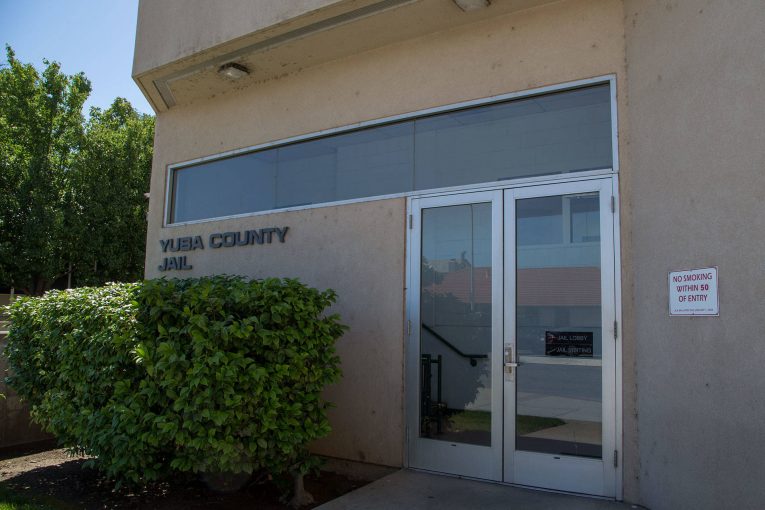
 By Rhonda Rios Kravitz and Kalin Kipling-Mojaddedi
By Rhonda Rios Kravitz and Kalin Kipling-Mojaddedi
As the world confronts a coronavirus pandemic and tries to grasp and mitigate its potential impact, there is one highly vulnerable group that requires more attention: individuals held in prisons, detention camps and jails.
There are 2.3 million people being detained across the U.S. – and the U.S. has more people behind bars per capita than any other nation.
READ: https://www.prisonpolicy.org/reports/pie2019.html
It is of utmost urgency that state, local and federal agencies coordinate with leading public health experts to prevent the spread of coronavirus in jails and prisons.
The health and well-being of every person in jail or prison nationwide is at risk.
In Northern California, Yuba County Jail raises particular concerns.
Conditions at the region’s last remaining immigrant detention center are notoriously bad. The jail has been under court order to improve conditions at the site for 40 years.
Now, as a detention center with an Immigration and Customs Enforcement (ICE) contract for as much as $6.5 million a year, Yuba County Jail holds immigrants for indeterminate amounts of time under these abysmal conditions.
The facility holds an average of 167 to 182 immigrants for ICE on any given day. Many detained immigrants are being held pending civil, not criminal, immigration proceedings – often because they  cannot afford to pay bond.
cannot afford to pay bond.
Reports about conditions from those held at Yuba County Jail are heartbreaking:
- Cells that have no working lights or water.
- The place is crawling with roaches.
- The drinking water out of the sink tastes like rust and lead.
- Medical requests being ignored for weeks at a time.
Freedom for Immigrants has highlighted some of the immigrants’ accounts on Yuba County Jail:
“This place is not fit for housing inmates. There is a sewer problem in the dorm and the inmates are being treated worse than abandoned animals on the streets.”
“I could not believe how dirty Yuba County is. I am housed in the ‘old’ part of the jail, which has bars for barriers or walls. There is dust and mold everywhere. The cleaning supplies, which consist of broom, mop, toilet brush, spray bottles, is not enough to even scratch the surface of filth in here. Everything is done inside the tanks. The toilets, shower, sink and bunks are under 5 feet from where we eat. Hair cuts are also done in the same space. There is no clean space to eat or coexist.”
The jail’s total capacity is 482 beds. On average, 407 people are held in detention there per day.
How will the jail protect the people incarcerated there, the staff, medical staff, visitors and members of the community who come in contact with the visitors? Who will receive tests, how will those held there receive treatment, how will they quarantine individuals who test positive?
The sheriff in Yuba County Jail should immediately develop evidence-based and proactive plans for the prevention and management of coronavirus, including education of persons in custody and staff, as well as humane housing for those infected.
The jail should release all people in ICE custody eligible for Alternatives to Detention; immediately release on parole anyone older than 60, immune compromised, pregnant or who has underlying conditions; immediately provide soap, CDC-recommended hand sanitizer, medical care, comprehensive sanitation and cleaning of facilities, and other safety measures as recommended by the CDC for those who remain incarcerated; eliminate medical copays; grant humanitarian parole requests; and lift all fees for calls to family members.
Following these recommendations would drastically reduce the numbers of people held at the jail, thereby reducing the risks of a potentially devastating coronavirus outbreak.
Viruses know no bounds nor jail cells; if action isn’t taken to protect those at Yuba County Jail, any outbreak will affect the wider community.
As the world faces a pandemic, the time to take bold actions is now for the safety of our communities as a whole.
Rhonda Ríos Kravitz is the dean emerita at Los Rios Community College, the co-founder of Step Up! Sacramento and the CEO of Alianza. She can be reached at rhondarioskravitz@gmail.com. Kalin Kipling-Mojaddedi is the communications manager for the Council on American-Islamic Relations, Sacramento Valley/Central California. She can be reached at kkipling@cair.com. Step Up and CAIR-SV are part of the Sacramento Immigration Coalition and the Campaign for Immigrant Detention Reform.
To sign up for our new newsletter – Everyday Injustice – https://tinyurl.com/yyultcf9
